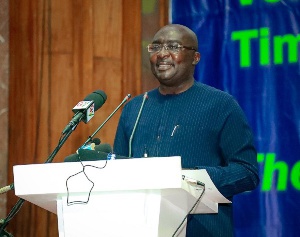The United Nations Conference on Trade and Development (UNCTAD) has ranked Ghana’s economy as the fifth most prepared for e-commerce in Africa.
UNCTAD in its 2020 Business-to-Consumer (B2C) E-commerce Index identified Ghana together with three other countries, Algeria, Brazil and Lao PDR, as having made the most improvement among the 152 countries surveyed.
Globally, Ghana ranked 81st, having improved on the 101st position it occupied in the 2019 index. The country’s performance meant that it emerged as the West African nation with the highest readiness to engage in and benefit from e-commerce.
African countries that ranked higher than Ghana were Mauritius (69th globally), South Africa (73rd), Tunisia (77th) and Algeria (80th).
The index scores 152 nations on their readiness for online shopping, worth an estimated US$4.4 trillion globally in 2018, up 7 percent from the previous year.
Countries are scored on access to secure internet servers, reliability of postal services and infrastructure, and the portion of their population that uses the internet and has an account with a financial institution or a provider of mobile money services.
Ghana’s performance comes on the back of a series of government-led efforts to drive digitalisation. These measures include the launch of mobile money interoperability, the digital address system, and a universal QR code to facilitate digital payments.
Shamika N. Sirimanne, director of UNCTAD’s division that prepares the annual index, said the global e-commerce divide remains huge.
“Even among G20 countries, the extent to which people shop online ranges from 3 percent in India to 87 percent in the United Kingdom. The COVID-19 pandemic has made it more urgent to ensure the countries trailing behind are able to catch up and strengthen their e-trade readiness.”
The index, she said, underscores the need for governments to do more to ensure more people can avail themselves of e-commerce opportunities.
“Otherwise, their businesses and people will miss out on the opportunities offered by the digital economy, and they will be less prepared to deal with various challenges,” she added.
Business News of Friday, 19 February 2021
Source: thebusiness24.com.gh













